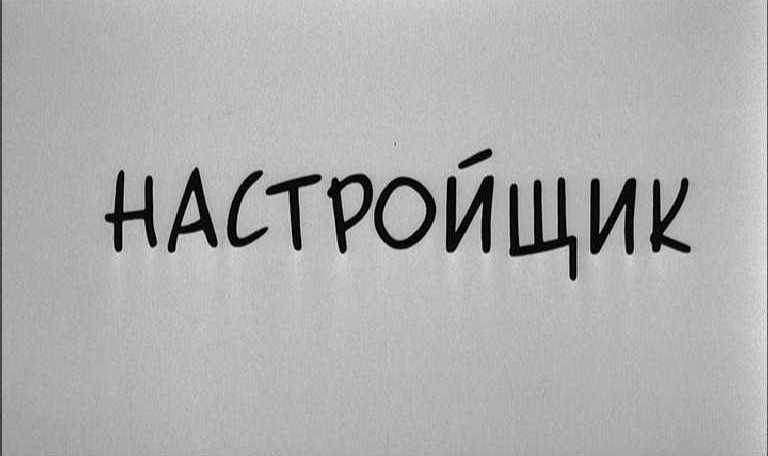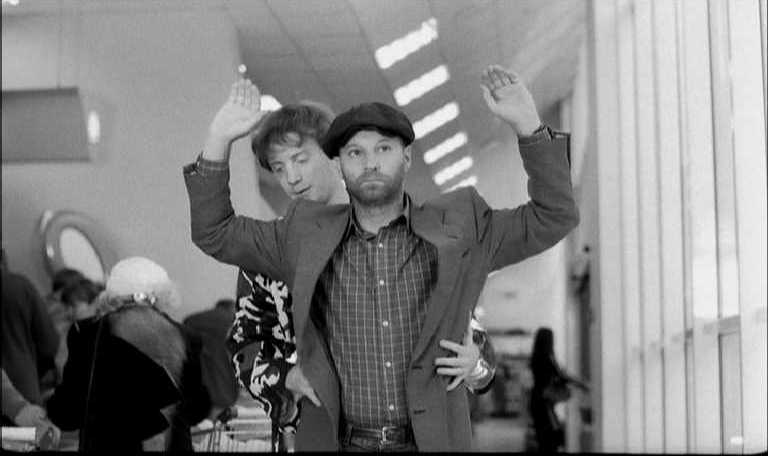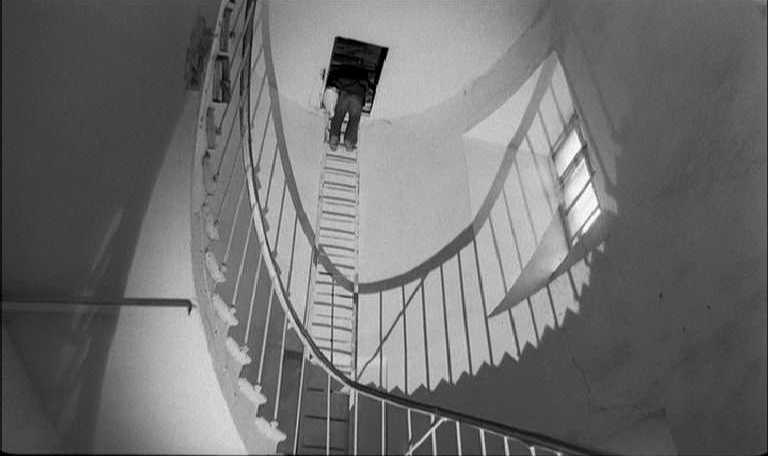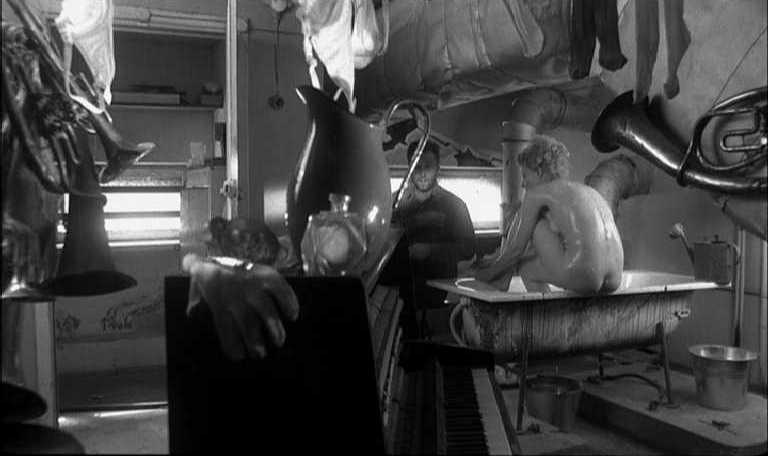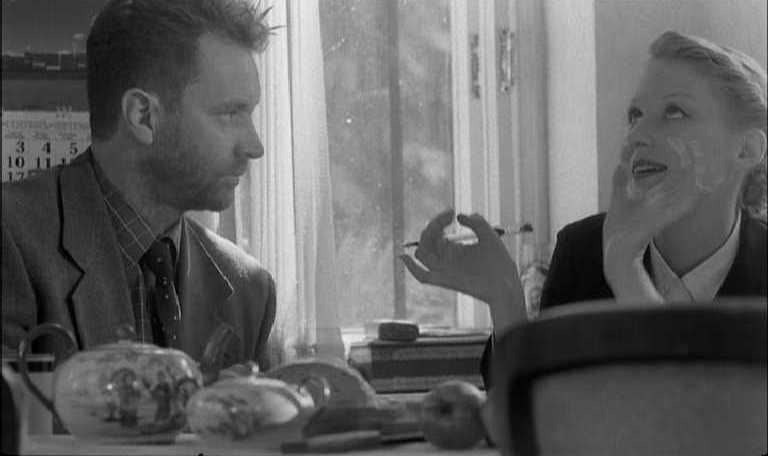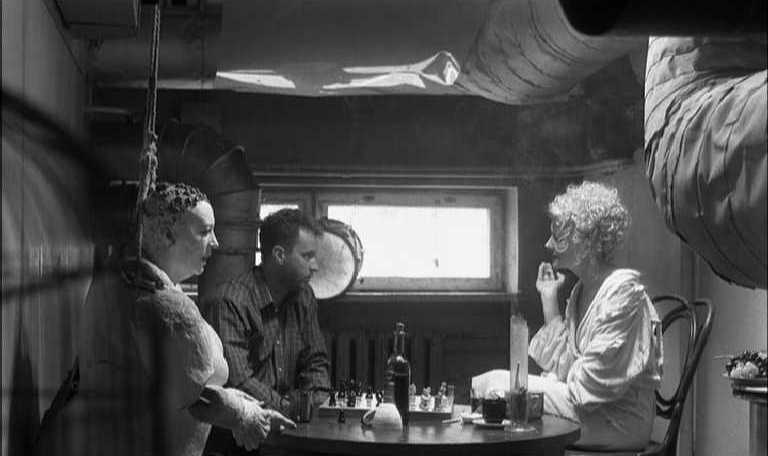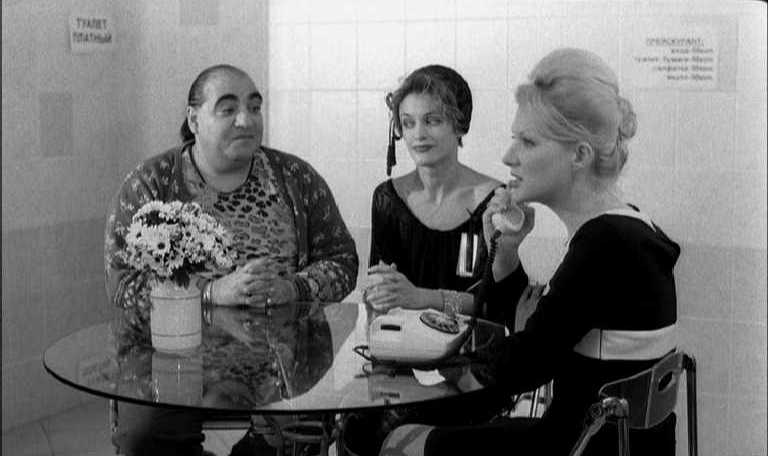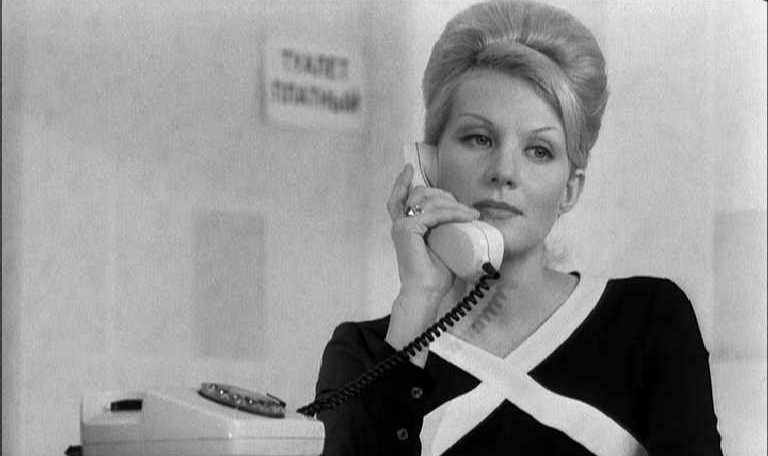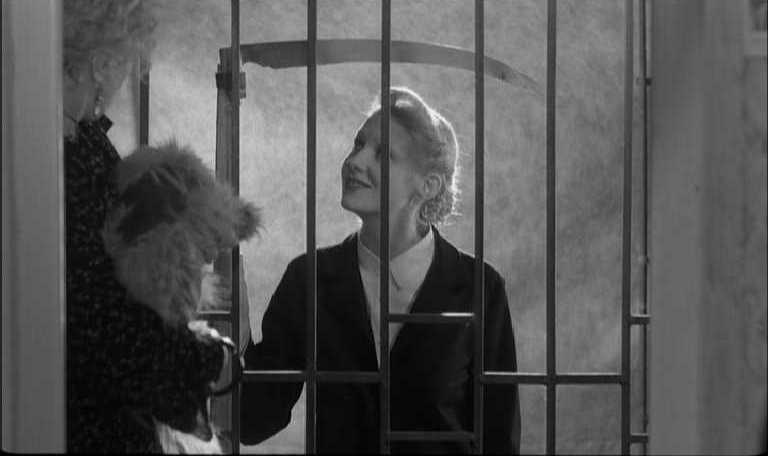
The Tuner / Nastroiuvach
2004
Ukraine, Pygmalion Production Film Co, Odesa Film Studio
155 min
Kira Muratova
Serhii Chetvertkov, Yevhen Holubenko, Kira Muratova
Hennadii Kariuk
Heorhii Deliiev, Alla Demidova, Renata Litvinova, Nina Ruslanova, Sergei Bekhterev, Natalia Buzko, Zhan Daniel, Uta Kilter, Volodymyr Komarov, Leonid Pavlovskyi, Anatolii Paduka
Andrii lacks both — a stable income and a drive; his pivotal life decisions are influenced by his capricious lover, the rock-starlette Lina. New prospects for Lina, and thus for Andrii, open up after a chance encounter with two wealthy widows, for whom Andrii tunes their piano. The ironic criminal plot about the lives of small-time criminals gradually transforms into a commentary on the unbearable social and economic conditions of the present day and the search for an escape: the older generation is sustained by “old money” and conventions of the past, while the youth, despite their hesitation, ultimately succumb to the brutal laws of capitalism.
The Tuner is the culmination of Kira Muratova’s explorations in the realm of pure genre and “sharp plotlines.” It began with the brilliant Three Stories — three novellas about the notion of murder; followed by the feature-length criminal farce Minor People. The next step was a loose adaptation of plots from the memoirs of the Russian criminologist and investigator of the Tsarist era, Arkady Koshko. The crime aspect of the storyline of The Tuner could easily be imagined in a half-hour format of one of the Three Stories, but Muratova deepens it, unleashing her imagination: she slows down the plot with “soft, gentle suspense,” writes extensive, almost grotesque, scenes for her bohemian Odesa friends, delights in the improvisations of Deliev and the monologues of Litvinova, quotes Nights of Cabiria, and finally, gives the lovers a chance to kiss on camera in all realness — not “like in the movies.”
Despite the director’s lukewarm expectations, The Tuner did not become a commercial sensation — but like the rest of Muratova’s masterpieces, it gained wide acclaim in niche circles. This film is perhaps the best starting point into the idiosyncratic cinematic universe of the brilliant Odesa-native, as it is possibly her most accessible work. Through all the tragicomic circumstances of the lives of eccentrics devised by Muratova, the film reveals an unconditional humanism, even a painful love for the flaws and mistakes of humanity, which were always inherent in the director despite her supposed misanthropy.
